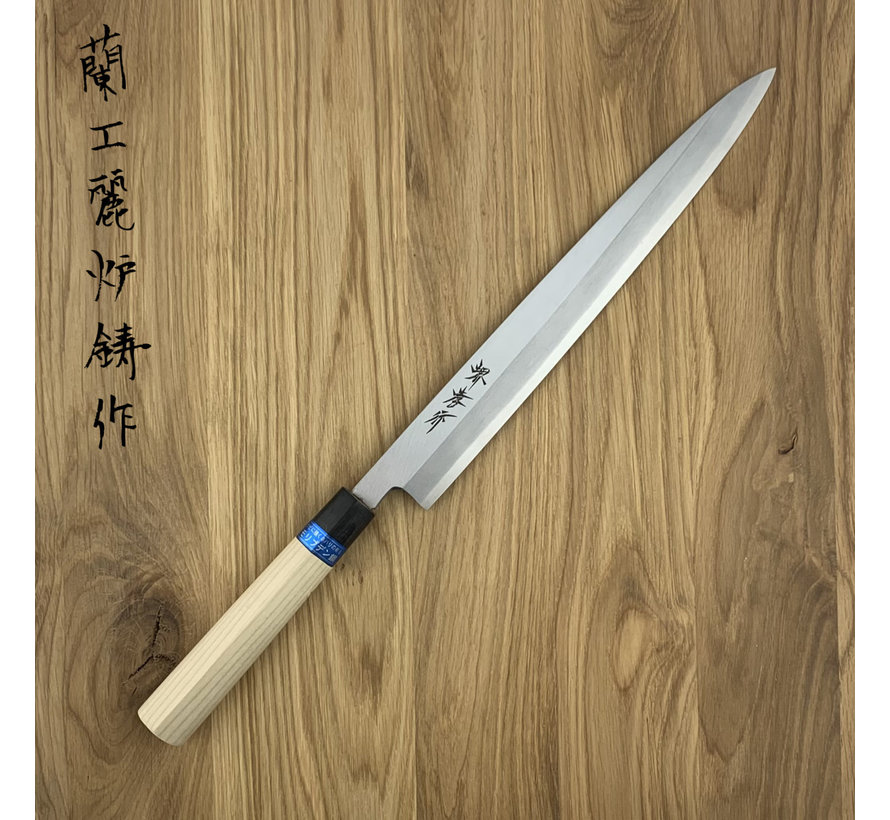Yanagibas are long, thin, single-bevel knives ground and sharpened on one side. The knives are meant for Translating to “willow’s leaf,” they’re graceful and elegant like their name suggests. The long and thin blade is designed to cut slices in one drawing stroke, which applies minimal pressure on the flesh of the fish to avoid stress and cell destruction. Yanagibas are commonly used for slicing sashimi, but can also be used for carving other meats like roast beef and prime rib.
This knife is a right handed knife.
Sakai Takayuki
Sakai Takayuki is Sakai's top knife maker and artisan workshop. Japan's Sakai region has a knife making history of 600 years. Among these knife makers, Sakai Takayuki is a representative of Sakai's long history of making blades. The quality of the finish and details of the forging technique are handed down over generations of fine craftsmen. Today Sakai Takayuki is sold to over 100 countries around the world. Their uncompromising knife making passion has attracted passionate customers beyond the border of Japan.
AUS-8 INOX Steel
The AUS-8 INOX is perfect for a young sushi chef or amateur home cook wanting to break into the world of sushi. Knives forged out of AUS-8, stainless steel are harder than your average kitchen knives but not quite as hard as some of the carbon and high-tech steels of Japan. In normal speak, it will keep an incredible edge for a long time but is more durable than some higher-end knives. It's also more resistance to corrosion.
Maintenance
Store the knife with care, e.g. in a knife block or magnetic shelf. Keep the blade sharp with a sharpening steel (regularly) or whetstone (when necessary) on one side.
Clean the blade with warm water and a little soap. Especially after cutting acidic products, it is recommended to clean the knife immediately. A Japanese knife can absolutely not be put in the dishwasher, both the blade and handle are irrevocably damaged.




